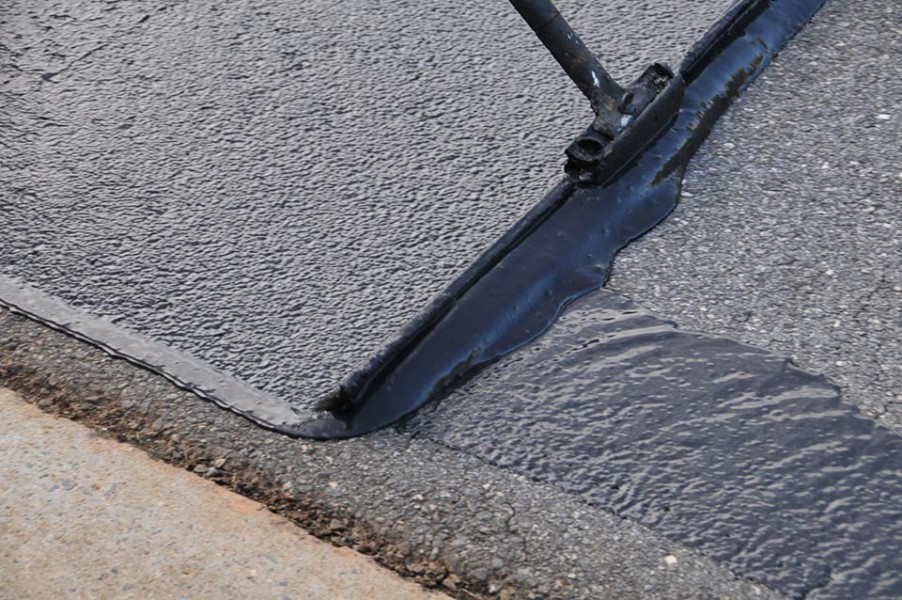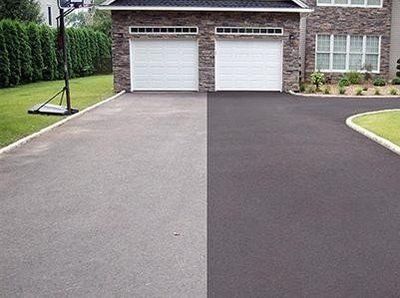Reliable Asphalt Repair: Cold Mix Sealing Techniques Revealed
Reliable Asphalt Repair: Cold Mix Sealing Techniques Revealed
Blog Article
The Future of Road Building And Construction: Cold Mix Asphalt Innovations
In the realm of road building, the development of cool mix asphalt developments holds considerable guarantee for reshaping framework development. As the demand for sustainable options remains to expand, the integration of these developments provides a glimpse into a future where roadways are not simply paths yet also contributors to ecological conservation and performance. The capacity for improved durability, efficiency, and cost-effectiveness elevates fascinating concerns concerning just how these developments might redefine the landscape of transport framework.

Lasting Advantages of Cold Mix Asphalt
Cold mix asphalt supplies a lasting option for roadway building projects due to its eco-friendly residential properties and extended durability. Unlike traditional hot mix asphalt, cool mix asphalt does not call for heats during the blending process, resulting in dramatically lower energy usage and lowered greenhouse gas emissions (asphalt patch repair). This makes cool mix asphalt a much more environment-friendly alternative for roadway construction tasks, straightening with international initiatives to lower carbon footprints and battle climate adjustment
Along with its environmental advantages, cold mix asphalt is also beneficial in regards to source conservation. The manufacturing of cold mix asphalt eats much less energy and fuel contrasted to warm mix asphalt, making it a more sustainable choice for protecting finite sources. The extended longevity of chilly mix asphalt minimizes the need for constant fixings and upkeep, resulting in cost financial savings over the lifespan of the roadway framework. By choosing cool mix asphalt for roadway building and construction tasks, stakeholders can contribute to a much more reliable and sustainable transport network.
Enhanced Longevity and Durability
Enhancing the durability and long life of roadway infrastructure is a vital aspect of optimizing transport networks. Cold mix asphalt advancements play a considerable role in attaining this objective. By incorporating advanced modern technologies and additives, cold mix asphalts are currently developed to withstand rush hour loads, differing temperature levels, and ecological elements, resulting in longer-lasting roadways.
One crucial aspect contributing to the improved longevity of cold mix asphalt is its improved resistance to rutting and breaking. Typical warm mix asphalts are susceptible to these kinds of damage, bring about raised maintenance needs and shorter roadway lifespans. Cold mix asphalts, on the other hand, display greater flexibility and flexibility, enabling them to better endure the anxieties imposed by traffic and climate condition.
Additionally, the long life of road surface areas is extended via the enhanced bonding capacities of chilly mix asphalt. These cutting-edge combinations create solid sticky bonds with existing pavement layers, developing a much more robust road structure that resists delamination and crater formation with time. Because of this, transport companies can take advantage of decreased upkeep expenses and long term solution life of roadways, inevitably bring about more lasting and resistant facilities asphalt patch repair networks.

Improved Performance in Different Climate Condition
Improved efficiency in numerous weather conditions is an essential consideration for modern roadway construction materials like cold mix asphalt. Cold mix asphalts are made to hold up against a range of temperature levels, from extreme cold to high warm, without endangering their architectural stability.
Cold mix asphalts exhibit excellent resistance to factors such as dampness, which can trigger conventional hot mix asphalts to break down over time. By continuing to be stable and long lasting in damp conditions, cold mix asphalts minimize the probability of gaps and cracks forming on roadway surfaces, inevitably prolonging the life expectancy of the facilities.
Cost-Effectiveness and Budget-Friendly Solutions

With the climbing demand for sustainable infrastructure remedies, the emphasis currently shifts in the direction of checking out economical and affordable choices within road construction technologies. Cost-effectiveness in roadway building and construction is crucial for federal governments, municipalities, and private professionals intending to take full advantage of facilities financial investments. Cold mix asphalt advancements supply a promising opportunity for achieving this goal by minimizing general project prices.
One key facet contributing to the cost-effectiveness of cold mix asphalt is its reduced manufacturing expenses compared to conventional warm mix asphalt - angle parking. Cold mix asphalt can be created making use of less power and less resources, leading to financial savings in manufacturing expenditures. In addition, the application procedure for cold mix asphalt is simpler and requires less specialized tools, more decreasing building expenses
Furthermore, the extended life-span and durability of cool mix asphalt contribute to long-term cost financial savings. Its capability to withstand various weather condition problems and withstand fracturing and damage lead to lower repair and maintenance expenditures gradually. By embracing affordable chilly mix asphalt solutions, road construction projects can accomplish budget plan performance without compromising on high quality or efficiency.
Environmental Impact and Carbon Footprint Reduction
Lessening the environmental influence and decreasing the carbon impact are extremely important considerations in modern road construction technologies. Traditional asphalt manufacturing launches considerable CO2 exhausts and adds to environmental destruction. To attend to these concerns, cool mix asphalt modern technologies have actually become a lasting choice. By utilizing cold mix asphalt, roadway construction projects can considerably decrease their carbon footprint. This advancement gets rid of the need for energy-intensive heating processes, causing reduced greenhouse gas emissions during production. Cool mix asphalt can be generated using recycled materials, even more boosting its environmental advantages.
Along with the manufacturing stage, the implementation of cool mix asphalt provides environmental benefits during the road's lifespan. The product's toughness and resistance to temperature changes minimize the need for constant upkeep and repair work, lowering general source consumption and environmental effect. As sustainability becomes increasingly important in framework growth, cool mix asphalt sticks out as a promising remedy to mitigate the environmental repercussions of road construction.
Verdict
To conclude, chilly mix asphalt innovations provide sustainable advantages, enhanced durability, and boosted efficiency in various weather. With cost-effectiveness and a concentrate on lowering environmental impact and carbon footprint, cold mix asphalt is shaping the future of roadway building and construction. Its eco-friendly residential properties make it a promising choice for creating more secure and much more reliable road networks while contributing to worldwide initiatives to deal with environment modification.
Unlike typical hot mix asphalt, cold mix asphalt does not require high temperatures throughout the blending process, resulting in dramatically reduced energy consumption and reduced greenhouse gas emissions. The production of chilly mix asphalt takes in less energy and fuel contrasted to warm mix asphalt, making it an extra lasting choice for protecting finite sources. Cold mix asphalts are developed to stand up to a variety of temperature levels, from extreme cool to high warmth, without compromising their architectural honesty.Cold mix asphalts display outstanding resistance to variables such as dampness, which can cause standard hot mix asphalts to degrade over time.One secret aspect adding to the cost-effectiveness of cold mix asphalt is its reduced manufacturing expenses contrasted to traditional warm mix asphalt.
Report this page